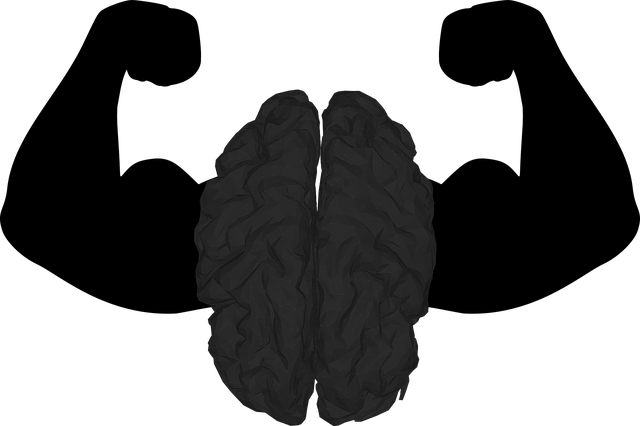Uniting Communities: Bilingual Adult Therapy & Crisis Hotline Support
Mental health crisis hotlines, especially those offering bilingual support, are vital resources for…….
In today’s diverse global community, the demand for specialized therapeutic approaches that cater to the unique needs of bilingual adults is more critical than ever. “Therapy for Adults Bilingual” (TAB) is a transformative field that recognizes the complex interplay between language, culture, and mental health. This comprehensive article aims to explore every facet of TAB, from its foundational principles to its global impact, technological innovations, and future prospects. By delving into this subject, we seek to empower therapists, policymakers, and individuals seeking healing to navigate the intricate world of bilingual therapy effectively.
Therapy for Adults Bilingual (TAB) is a specialized therapeutic approach designed to address the unique psychological and emotional challenges faced by individuals who are fluent in two or more languages. It acknowledges that language is not merely a tool of communication but an integral part of one’s identity, cultural heritage, and sense of self. TAB aims to help bilingual adults navigate their internal experiences and external environments by fostering a deeper understanding of their linguistic diversity.
The core components of TAB include:
The concept of bilingual therapy has evolved over time, reflecting societal changes in language use and cultural diversity. Historically, monolingual models dominated psychological practices, often neglecting the unique needs of bilingual individuals. However, as societies became more multicultural, researchers and clinicians began to recognize the importance of addressing language-related issues in therapy.
In the late 20th century, pioneers in the field of cross-cultural psychology laid the groundwork for TAB by emphasizing cultural sensitivity and the impact of language on human experiences. This shift led to the development of specific therapeutic approaches tailored to bilingual populations. The increasing visibility of multilingual communities worldwide has further spurred the growth and acceptance of TAB as a vital component of mental health services.
TAB occupies a unique niche within the broader field of psychology and mental health care. It bridges the gap between traditional therapy and cultural studies, offering a holistic approach to understanding and treating psychological issues. By recognizing language as a dynamic aspect of identity formation, TAB challenges monolingual paradigms and promotes inclusive practices.
The integration of TAB into mainstream therapy has several advantages:
The impact of Therapy for Adults Bilingual extends far beyond national borders, with its influence felt across continents. As global migration patterns continue to shape diverse communities, the demand for TAB has surged, driving its international adoption and adaptation:
Several trends are shaping the future of TAB globally:
The economic landscape surrounding TAB is dynamic and multifaceted, with several key considerations:
TAB contributes significantly to economic systems through:
Technology has revolutionized the practice of TAB, enhancing accessibility, therapy techniques, and research capabilities:
| Technology | Impact on TAB |
|---|---|
| Telehealth Platforms | Enables remote therapy sessions, expanding access to TAB for rural or geographically dispersed clients. Video conferencing tools allow therapists to observe non-verbal cues and maintain a therapeutic alliance across distances. |
| Translation Apps and Software | Real-time translation during therapy sessions improves communication. Advanced software can even analyze sentiment and cultural nuances in translated text, providing valuable insights to therapists. |
| Online Language Learning Tools | Therapists can use these tools to learn or improve their proficiency in clients’ languages, fostering a deeper understanding of linguistic nuances. |
| Artificial Intelligence (AI) | AI-powered chatbots offer basic emotional support and language practice to clients between sessions. Natural Language Processing (NLP) algorithms can analyze therapy transcripts for pattern recognition and treatment monitoring. |
| Virtual Reality (VR) | VR technology offers immersive experiences, allowing clients to explore and express themselves in safe, controlled virtual environments, particularly beneficial for trauma-related issues. |
The future of technology in TAB holds immense promise:
The development and practice of TAB are shaped by various policies and regulations that vary across jurisdictions:
Policies and regulations play a critical role in shaping the landscape of TAB:
Despite its potential, TAB faces several challenges that require strategic solutions:
Challenges:
Proposed Solutions:
Overview: UBCI is a community-based organization that provides TAB services to immigrants and refugees in New York City. The program focuses on addressing cultural identity issues, language barriers, and trauma related to migration.
Approach:
Outcomes:
Overview: NBtn is a nationwide collaboration of researchers, therapists, and policymakers working to advance TAB practices in Australia. They focus on capacity building, research, and policy advocacy.
Strategic Initiatives:
Impact:
Focus: LCTC offers specialized TAB services for expatriates and Japanese nationals struggling with language-related emotional challenges.
Services:
Client Testimonials:
The field of Bilingual and Multicultural Therapy is dynamic, evidence-based, and increasingly recognized as essential for addressing the mental health needs of diverse populations worldwide. As technology advances and policies evolve, TAB continues to break down barriers, foster cultural understanding, and promote well-being. Through research, innovation, and dedicated professionals, TAB holds the promise of a brighter, more inclusive future for individuals navigating their cultural identities and languages.

Mental health crisis hotlines, especially those offering bilingual support, are vital resources for…….